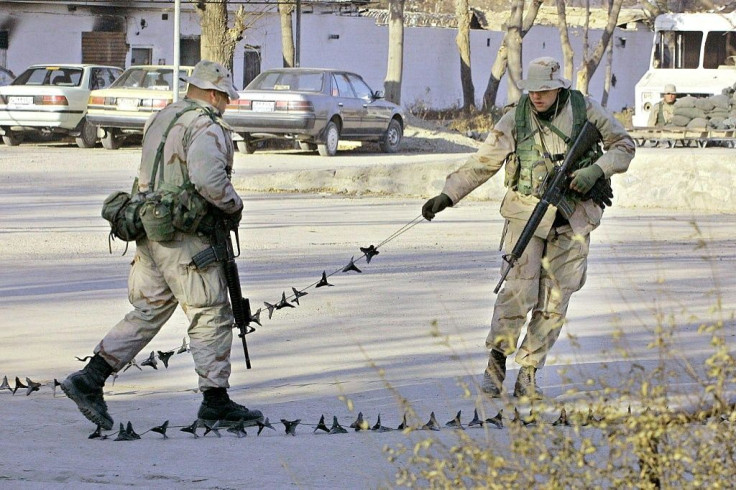US Orders Staff To Leave Kabul Due To Threats
The United States on Tuesday ordered non-essential staff to leave its Kabul embassy, citing increased threats as Washington prepares to end its 20-year war in Afghanistan.
The order came two weeks after President Joe Biden announced that US troops, currently around 2,500, would leave the country by September.
Meanwhile, Zalmay Khalilzad, Washington's special envoy to Afghanistan, warned in a Senate hearing that US aid could be slashed if a Taliban-dominated government did not respect human rights.
The State Department said in a travel advisory that it had "ordered the departure from US embassy Kabul of US government employees whose functions can be performed elsewhere."
Ross Wilson, the acting US ambassador in Kabul, said that the State Department took the decision "in light of increasing violence and threat reports in Kabul."
He said the order affected an unspecified "relatively small number" of employees and that the embassy would remain operating.
"Personnel who are urgently needed to address issues related to the drawdown of US forces and the vital work we are doing in support of the Afghan people will be able to remain in place," Wilson wrote on Twitter.
Earlier this month Biden said he would withdraw all troops from Afghanistan by September 11, the 20th anniversary of the attacks that led the United States to invade and topple the Taliban regime which had welcomed Al-Qaeda.
Biden concluded that US forces had achieved their objectives and could do little more, but US officials have made no secret of their fears that violence will intensify as the Taliban perceives that they achieved victory.
The State Department advisory, which also renewed warnings for Americans not to visit, said that "terrorist and insurgent groups continue planning and executing attacks in Afghanistan."
The Biden administration will maintain limited forces in Kabul to guard the sprawling embassy.

In a Senate Foreign Relations Committee hearing, Khalilzad, who has overseen negotiations with the Taliban rebels over the past several years, said the US could leverage its hundreds of millions of dollars in aid to the country to pressure them to respect human rights, especially for women.
"The Talib say they are interested in not being a pariah," he told the panel.
"We have said that if they do want US assistance, if they want international acceptance, they want to end their pariah status ... those things will be all affected by how they treat their own citizens -- first and foremost, women of Afghanistan, children and minorities."
"I have personally made it very clear that the issue of human rights, particularly women's rights, is second to terrorism in terms of the hierarchy of US policy importance," he said.
He added that if the Taliban seize power militarily from the government in Kabul, they will have little international support.
"They will face isolation, regional opposition, sanctions, and international opprobrium," he said.
"There is remarkable consensus within the region and the international community against a military takeover by the Taliban."
sct/pmh/dw
© Copyright AFP 2024. All rights reserved.





















